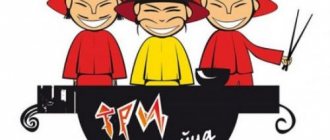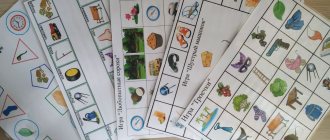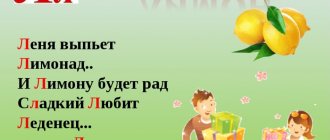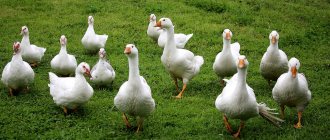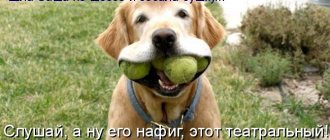Tongue twisters for the sound L: 50 tongue twisters for the development of children's speech and tasks and games for them.
This article contains tongue twisters for automating the correct pronunciation of the L sound in words and phrases, as well as games and tasks for them.
Tongue twisters have been specially selected for the development of speech in preschool children. In all tongue twisters with the sound L, there is no sound r, which is difficult for children to pronounce, which makes it possible to focus the child’s attention on the sound l and l and their correct articulation during tasks and language games.
Yazykovertkina “l” to help
A speech therapist usually helps. And parents can help consolidate the result with fun and useful tongue twisters or “tongue twisters,” as they were called in the old days. There are many options. This is a practice for the soft “l” sound.
- Wasn’t it you who begged for love, beckoning me into the fog of the estuaries?
- Lyalya loves the doll Lelya. Lyalya is cherishing her doll. Lyalya in Lyulya - and Lyalya sleeps.
- They sawed, they stabbed, they stabbed, they sawed. Lilya with Polina, Polina with Lilya.
- I caught burbot, caught tench, exchanged tench for burbot, and caught burbot, but didn’t catch it.
- La-la-la - the boat has sailed. Li-li-li - Lilya was taken away. Lu-lu-lu - I don’t like to be lazy.
This is training a hard “l” when alternating with a soft “l”:
- Mila loves to wash her with soap, Mila’s mother will give her soap.
- They poured a spoon out of tin. We made a small mistake. The foundry worker Lilya was lazy. Half of the casting was missing.
- Thekla has nice beets. They didn't get dry or wet all summer. And they didn’t fade in winter.
Some children make the sound “l” instead of “r”. And here a well-known tongue twister can come to the rescue, which trains two sounds at once - Karl stole corals from Clara, and Clara stole the clarinet from Karl.
Article:
A cheerful set of words, rhymes, and phrases can be easily pronounced with clear, unmistakable pronunciation. In addition, tongue twisters for the development of diction, in addition to entertainment, will help you learn to pronounce sounds and words clearly, acquire correct diction and get rid of speech defects. Practicing sounds: b, p, v, f, g, k, d, t, x - From the clatter of hooves, dust flies across the field. - The bull is blunt-lipped, the bull is blunt-lipped, the bull’s white lip was dull. - A cap on a cap, a cap under a cap. — The big man Vavila merrily moved his pitchfork. — There are bells near the stake, there is a whirlpool near the gate. - The jackal walked, the jackal galloped. - Buy a pile of spades, buy a pile of spades. Buy a pile of fluff, buy a pile of fluff. — Cook Peter, cook Pavel. Peter swam, Pavel swam. — A weaver weaves fabrics for Tanya’s scarves. — The water truck was carrying water from the water supply. — It’s worth a heap with a little under the head. — Frosya is flying millet into the field, Frosya is taking out the weeds. — The crab made a rake for the crab. The crab gave the rake to the crab: rake the hay, crab, rake! — The Christmas tree has pins and needles. — Cuckoo bought a hood. Put on the cuckoo's hood. How funny he is in the hood! - All beavers are kind to their own. Beavers take beans for beavers. Beavers sometimes excite beavers by giving them beans. - Pankrat Kondratov forgot the jack, and Pankrat cannot lift the tractor on the road without a jack. And a tractor jack is waiting on the road. - There’s a honey cake for honey, but I’m not in the mood for a honey cake. - Prokop came, dill was boiling, Prokop left, dill was boiling; Just as under Prokop the dill was boiling, so without Prokop the dill was boiling. — Feofan Mitrofanych has three sons, Feofanych. — Our guest took away our cane. “The black grouse was sitting on a tree, and the black grouse with the grouse were on a branch.” - I praise the halva. - The crested little girls laughed with laughter. Practicing the sounds: r, l, m, n - Two woodcutters, two woodcutters, two woodcutters were talking about Larka, about Varka. — Clara the Queen crept towards the chest. - There is grass in the yard, there is firewood on the grass - one firewood, two firewood, three firewood. Don't cut wood on the grass in your yard. “There’s firewood in the yard, there’s firewood behind the yard, there’s firewood across the width of the yard, the yard won’t accommodate the firewood, the firewood needs to be moved to the woodyard.” — In the yard of the widow Varvara, two thieves were stealing firewood, the widow got angry and put the wood in the shed. “The fellow ate thirty-three pie pies, all with cottage cheese.” - Thirty-three ships tacked, tacked, but didn’t tack. — In the shallows we lazily caught burbot. In the shallows we lazily caught tench. Was it not you who sweetly begged me for love and beckoned me into the mists of the estuary? — Karl stole corals from Clara, and Clara stole a clarinet from Karl. — Queen Clara severely punished Charles for stealing the coral. — Karl put the bow on the chest. Clara was stealing onions from the chest. — Romasha’s mother gave her some whey from her yogurt. - Tell me about your purchases. What about purchases? About shopping, about shopping, about your purchases. - Eagle King. - Malanya the chatterbox chatted and blurted out the milk, but didn’t blurt it out. —Have you watered the lily? Have you seen Lydia? They watered the lily and saw Lydia. - Our Polkan from Baikal lapped. Polkan lapped, but did not shallow Baikal. - We ate, ate ruffs from the spruce tree, we barely finished them off from the spruce tree. “Mom didn’t spare soap.” Mom washed Mila with soap. Mila didn't like soap, Mila dropped the soap. — Tractors have been rattling on the road since the morning. - An eagle on a mountain, a feather on an eagle, a mountain under an eagle, an eagle under a feather. — On Mount Ararat, Varvara was picking grapes. Practicing the sounds: z, s, zh, sh, ch, shch, c - Senya and Sanya have catfish with mustaches in their nets. - The wasp does not have whiskers, not whiskers, but antennae. — Senka is carrying Sanka and Sonya on a sled. Sledge jump, Senka's feet, Sanka's side, Sonya's forehead, all in a snowdrift. - Osip is hoarse, and Arkhip is hoarse. - He doesn’t want to mow with a scythe, he says, scythe is a scythe. — The net caught on a twig. — Seven of us sat in the sleigh ourselves. — Watermelons were being reloaded from truck to truck. During a thunderstorm, the body fell apart in the mud from a load of watermelons. — The waxwing is blowing a pipe. — Sasha walked along the highway and sucked on a dryer. - The heron wasted away, the heron was dry, the heron was dead. - Forty mice walked, they found forty pennies, two poorer mice found two pennies each. - Sixteen mice walked and six found pennies, and the mice, which are worse, noisily fumble for pennies. — Scales on a pike, bristles on a pig. “It’s terrible for a beetle to live on a bitch.” — Two puppies are nipping cheek to cheek at a brush in the corner. - The pike tries in vain to pinch the bream. — The ground beetle is buzzing, buzzing, but not spinning.
Training the sound “s”
Sometimes instead of the whistling sound “s”, children hear the hissing sound “sh”. More often this occurs due to underdevelopment of the speech apparatus, as well as due to birth injuries. You can correct the position by regular training and honing the “s”. There are a number of useful “tonguage tools” for this:
- Sasha sewed shorts for Sveta. Sveta sewed boots for Sasha.
- Senka brought gifts to the family: earrings for his sisters, boots for his brothers.
- They bought a saber for Sasha. Sasha is sitting with a saber and with his neighbor Sasha. They started playing and broke the checker.
- Sasha is perfection and is still improving herself.
- Sasha sewed a hat for Sasha. Sasha hit a bump with his hat.
- I'm tired of asking to mow in the field. Mill all the braids in millet. Posed millet for the piglets. And the piglets ask for more millet.
- A fidgety neighbor has a stay-at-home neighbor. I was going to sit at home with my fidgety neighbor all day with nothing to do, but the fidgety guy didn’t sit for even a second.
These and similar tongue twisters help to pronounce “s” clearly and in all variations.
Tongue twisters starting with "l" and "s" for adults
Adults will also find “tongue wrenches” useful in order to hone their speech and more closely monitor the pronunciation of sounds. This is relevant for presenters, speakers, artists, entertainers. Examples of the most common “linguists”:
- Have the lilies been watered? Or have the lilies withered? (continued: We watered the lilies. We poured everything on the lilies).
- We sank to the poplar! They sank to the poplar! (continuation: They stomped all the way to the poplar, but their feet stomped).
- Klava found a treasure in the well. She put it in the deck and dropped it into the water. (continued: Klava looks into the water: no deck, no treasure).
- Dear Mila loved whitewash.
- We sat down in seven sleighs, seven to a sleigh. (continuation: the seven of us rolled down on a sleigh - and into a snowdrift).
- Senya said to Sanya: we ourselves have a mustache!
For adults, speaking complex phrases quickly is important. This promotes good diction.
Automation of the sound “L” in tongue twistersmaterial on speech development on the topic
Tongue twisters with the sound [l] - One Klim pounded the wedge, pounded and knocked out. “Our Polkan fell into a trap. — Slava ate lard, but there was not enough lard. - Klim threw his bow at Luka. - Polkan pushed the stick with his paw. — The Christmas tree has pins and needles. - Cap - under the cap, under the cap - cap. - Mom washed Mila with soap, Mila didn’t like soap. “Ivan the idiot was chattering milk, but didn’t blurt it out.” “The little chatterbox chattered milk but didn’t blurt it out.” — — The flour-milling goat ground flour for whom and for whom did it not? - From the one to whom he ground, he received pies; From those whom he did not grind, he received blows. — Near the stake there are bells, and on the stakes there are bells. - In the boat - Volodka, in the tent - a shovel. - The ox was white. — The ox fell into the wolf's den. — The sorcerer conjured for a long time in the boat. — Lala was eating halva under the blanket. - Dear darling, Mule was small. — Neil was mopping the floor and whining. — Plato was sailing on a raft. — Volodya drank milk from a bowl. — Slava got up from his chair. — Is there a ball in the flowerbed? Not a ball - a bun. Poems for sound automation [l] * * * A wolf went out hunting, He knows a lot about hunting. And the goat, and the goose, and the heifer were afraid of the evil wolf. * * * The shovel dug, dug, dug, Then she lay down, apparently very tired. * * * A crowbar breaks thick ice, a crowbar never tires of breaking. * * * The saw is sawing a thick trunk, It is white-hot. * * * The cleaver chopped, chopped, chopped, The cleaver split the log. * * * The broom danced and danced around the house, sweeping the floors from corner to corner. * * * The rocking duck laid eggs, the rocking duck hatched children, the rocking duck caught fish. The rocking duck fed the children. And the good drake swam on business, he swam on business - he looked after the children. Olenka What you took, put it back - Olenka knows this. What you took, put it back! Only the girl is small: She forgets where she got it. Z. Alexandrova Summer day There was a blue sky, There was a golden sun, A cat was lying on the porch, A boy was planting a tree. Time passed slowly, It was quiet and warm. V. Danko
A terrible story While finishing a bun with butter, the brothers were walking along the alley. Suddenly, from a back street, a large dog barked loudly at them... D. Kharms * * * Klava was putting the treasure in the deck. The treasure floated away from Klava into the water. Klava did not swim for the treasure, but the deck floated away. * * * Striped rugs Vlas's daughter rinsed. I rinsed and rinsed - the river became striped. * * * The woodpecker lived in an empty oak tree, The oak tree chiseled like a chisel. I hammered for a day, hammered for two, and hit the sky with my beak. * * * Lived a tin soldier. He sang, joked and did not bother. He fought, did not get tired, and fell and got up himself. And he always remembered in battle His soldier family, Where he was for everyone, and every one of them stood for him. * * * The darkness could have swallowed us, But the lamp helped us... Icicle When I ate the icicle, It was very tasty, And then I got sick, It became very sad. M. Druzhinina Resentment Let him cry if someone wants, But I don’t cry - I don’t want to. And I feel bad for those who cry: Through the tears the sun is not visible. R. Sef * * * - White hare, white hare, Where did you run after the bast? The white hare answered: “I didn’t run, I galloped.” Snowfall The day came, and suddenly it got dark. The lights are on, we look out the window. The snow falls white and white. Why is it so dark? V. Berestov * * * Everything is white, oh, everything is white, It has blossomed in white. A light trail of a little hare, a white beret on a birch tree, and a white downy scarf on an alder grove. A. Prokofiev Pavka's bast shoes on the bench Klavka's bast shoes are weaving. Bast shoes are not suitable for Klavka's feet, But bast shoes are suitable for the paws of a cat. N. Konchalovskaya White color White snow, white chalk, The white hare is also white, But the squirrel is not white, It wasn’t even white. E. Izmailov
Which tongue twisters are more difficult?
The complexity of "linguists" is not determined by their size. The difficult combination of sounds makes it complex and difficult to pronounce. For example, the sound “l” in this variation will be more difficult to pronounce:
- The snout pig was white-nosed, blunt-nosed. I dug up half the yard with my snout, dug, dug.
- Karl put onions on the chest, Klara stole onions from the chest.
- The queen and her gentleman were walking around the square. There were no lights on in the park. The gentleman did not want to use foul language in front of the queen.
It is not recommended to give such tongue twisters to children under 8 years of age. They are more suitable for older children and adults.
Options for tasks and games with tongue twisters using the sound L for children
— Game “From Turtle to Rocket”, “Radio” - for a description of the games, see the article “Automation of sound R: games and tasks for children”
- Find words in the tongue twister with the sound L and with the sound L.
- Find words in a tongue twister in which the sound L (or the sound L) is at the beginning of the word, in the middle of the word, at the end of the word.
- Come up with your own funny sentence with this word (fable - confusion).
- Which word got lost? (The adult replaces the word from the tongue twister with another word that is inappropriate in meaning, the children guess which word got lost and which word needs to be put in the tongue twister).
- Take two words with the sound L from the tongue twister and combine them into one sentence.
- Say a tongue twister cheerfully, sadly, amazed, admiringly, tiredly and with other intonations. You can play “Tell me like me” - the child repeats the intonation, pauses of the host - the adult in pronouncing the tongue twister.
- Guess the intonation with which your playing partner pronounced the tongue twister.
— The correct way to say a tongue twister out loud is first slowly (this is how Tortilla the turtle would say it), then at an average pace (this is how Artemon would say it), then quickly and quickly (this is how Toropyzhka says tongue twisters).
- Catch the ball from the leader and, in response, repeat the tongue twister and throw the ball further either to the leader or to the next child.
Rules for the pronunciation of “linguists”
To achieve maximum results from repeating pure phrases, you must adhere to the following rules:
- You must first pronounce the phrases slowly and clearly.
- If we are talking about a child, he must first explain the meaning of the phrase, since it does not always contain understandable words.
- The second time it’s worth saying the phrase faster.
- The third time, say quickly and repeat again.
- For adults, it is not enough to simply strive to speak quickly. You should also change your expression and intonation. Because diction training also includes expressiveness of speech.
You should always start with short sayings. They are easier to remember and pronounce. There is no point in stopping there. After automating the short “tongue rollers,” you can move on to more complex and longer ones. If short phrases are given with ease and without difficulty, this indicates that you are ready to take new steps towards ideal diction.



